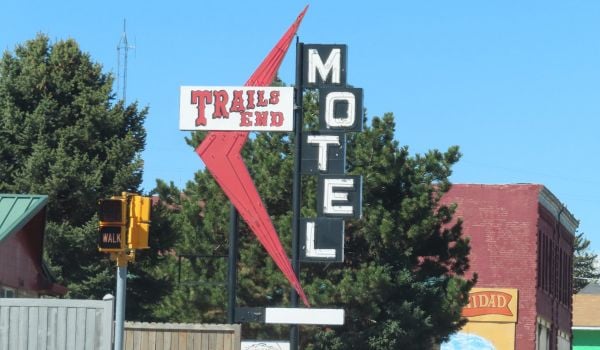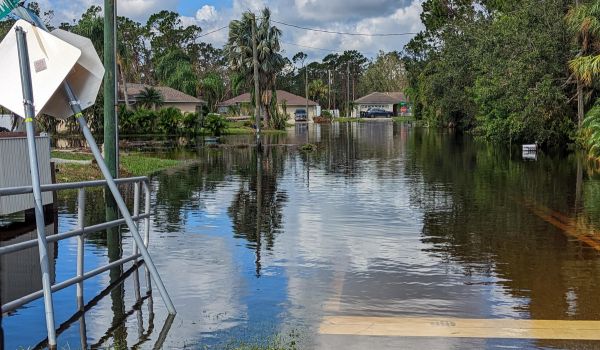Looking for hope from 2016 may seem like a fool’s errand, but consider the following.
With over two decades experience in construction, Tonya Hicks spent most of the past year building her women-centric residential construction and maintenance company, and she’s already got a waiting list of clients for the upcoming spring construction season in Atlanta.
With nearly two decades of experience in commercial real estate investing, Queens-native Tammy K. Jones is now leading her own firm, which partnered with New York City this year to run a new loan fund to give emerging developers a fighting chance to take on bigger projects and diversify the city’s real estate development industry.
Meanwhile, Jessica O. Matthews beat the odds as a black woman raising venture capital in the U.S., and this year closed a $7 million round of investment for her startup energy technology company. According to research from Project Diane, of all venture capital deals from 2012 to 2014, only 24 out of 10,238 went to black female founders like Matthews.
The financial system has long been a major barrier to many entrepreneurs like these. It can deny them capital to start businesses; it can cause the loss of affordable housing and stable communities to nurture young minds of future CEOs or star employees from historically disadvantaged communities. At the end of 2015, we reported on several storylines that showed some momentum toward making the financial system more equitable. Here’s the 2016 edition.
Focusing on the Racial Wealth Gap
Over the past year, The Runway Project has been taking shape and gaining steam. Founder Jessica Norwood had spent years trying to come up with financial tools and other tools to support economic self-determination for black families. The lessons of that work, distilled: The racial wealth gap is also a friends-and-family capital gap.
The average cost to start a business from scratch is $30,000, according to the Kauffman Foundation. Banks and other small business lenders typically expect that entrepreneurs can get that investment from friends and family, and yet black median household wealth is one-thirteenth that of white median household wealth, according to the Pew Research Center. That’s a disadvantage that too many black entrepreneurs are simply born into.
The Runway Project is now working locally in over half a dozen metros and counting, bringing local partners together in each instance to fill in the capital gap, including the friends-and-family part. The first pilot launched this fall in Oakland.
Online Tools Open Up Impact Investing
Two online tools launched into pilot phases this year that promise to help connect investors and grassroots groups and entrepreneurs who want to have an impact.
ImpactUs Marketplace launched in the fall. This platform promises to provide a one-stop-shop for investors or investment advisors looking for impact investments — investments that promise a measurable social return in addition to financial return. In this year’s annual U.S. Trust Insights on Wealth and Worth Survey, 83 percent of surveyed millennials already have or are interested in making impact investments. The ImpactUs Marketplace lets users search and browse for impact investing opportunities based on impact issue (such as health, education, the environment or small business), geography, investment type (debt or equity), investment term and expected financial return.
For the rest of your money, the place where it sits before you invest it or spend it can also have a positive impact on the world. Mighty is another online platform that also launched its invitation-only pilot phase this past fall. This platform parses through multiple data sources from federal regulators to the Global Alliance for Banking on Values to B Corporation Data and more, building an impact profile of each and every bank. Users can compare community, regional and national banks and hopefully find an option that fits their everyday needs as well as expressing their personal values — environmental sustainability, workers rights, community development and more.
Finding New Sources to Spur Development
Finding capital for community development continues to be a challenge, but new sources can shake things up. Chicago got two of them this year.
Benefit Chicago is a groundbreaking partnership that channels dormant donor-advised funds into the community development mix. With a donor-advised fund, you get the tax benefit now and decide which charitable organization or organizations get a donation later. Local community foundations usually hold the money in a bank account while waiting for you to decide which organization should get a donation. There is around $78 billion sitting dormant in donor-advised funds right now in the U.S., yet to be distributed to a charitable cause.
Under the Benefit Chicago partnership, the Chicago Community Trust put $50 million in dormant donor advised fund dollars that would otherwise be sitting in a bank account into a pool with $50 million in seed capital from the MacArthur Foundation. The $100 million pool is slated for investment into local organizations (for-profit or nonprofit) that have a social mission Chicago.
Meanwhile, Chicago City Treasurer Kurt Summers unveiled a plan to move $100 million in city dollars into community development financial institutions (CDFIs), federally certified organizations that specialize in lending to people and businesses in low-to-moderate income neighborhoods.
Over in NYC, foreign investors will be part of the capital stack for a project to redevelop a blighted corner into a grocery store, credit union and incubator space. The corner is adjacent to a large public housing complex, whose residents helped envision the plan for the site. The foreign investors will come through the EB-5 program, created to spur development, but long since outdated and in need of reforms to get it back to its original intention.
An Old Source of Capital for New Community Development
The Federal Home Loan Bank system, consisting of 11 regional branches, was part of the depression-era reforms that led to the massive wave of homeownership and wealth creation in the middle of the 20th century. While racist policies limited the beneficiaries of those reforms to white households, the Federal Home Loan Banks are still around, and still provide low-cost capital for financial institutions of all sizes. It’s one of the financial system’s best kept secrets.
Since they were first permitted to do so in 2010, CDFIs have started to become members of their regional Federal Home Loan Bank, giving them access to cheap capital from the system. Over 40 have joined so far.
The Federal Home Loan Banks themselves have also taken an interest in community development. The Chicago branch has a revolving loan fund that a CDFI is using as capital for small business loans in the Chicago area. The San Francisco branch committed $40 million toward quality job growth and small business lending this year, recognizing that without good jobs and small businesses, no community is truly affordable.
In conclusion, the financial system is more than a big ship that will take a long time to shift toward a more equitable future. It’s more like a fleet of ships, some very large and some smaller and more nimble. The big ships, like Wall Street banks or hedge funds, are easy to pay attention to, and this year in particular one of them — Wells Fargo — got caught sailing in a really bad direction. Look a little closer, and you start to see the smaller, more nimble ships starting to sail somewhere more equitable.
The Equity Factor is made possible with the support of the Surdna Foundation.

Oscar is Next City's senior economic justice correspondent. He previously served as Next City’s editor from 2018-2019, and was a Next City Equitable Cities Fellow from 2015-2016. Since 2011, Oscar has covered community development finance, community banking, impact investing, economic development, housing and more for media outlets such as Shelterforce, B Magazine, Impact Alpha and Fast Company.
Follow Oscar .(JavaScript must be enabled to view this email address)

















